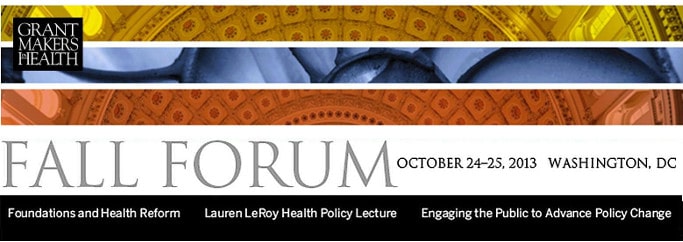What the Flint Water Crisis Tells Us about Public Health, Lead Risks, and Safe Drinking Water Nationally
The webinar reviewed the latest scientific research on the effects of lead, identified why water systems are failing so many communities, and highlighted what can be done about drinking water inequities.
The Flint Water Crisis: A Primer on Philanthropy’s Role
This webinar explored philanthropy’s role in supporting families in Flint and preventing future crises in other communities, and provided updates about on-the-ground operations, including challenges in reaching all community members.
Third Annual Public-Private Collaborations in Rural Health Meeting
Third Annual Public-Private Collaborations in Rural Health Meeting was held from May 11-12, 2015 in Washington, D.C.
Pathways to Health
Each year GIH invites grantmakers to share their perspectives by writing essays devoted to the annual conference theme. This year’s writers have put their thoughts to paper regarding their journeys on Pathways to Health. We invite you to read the guest commentaries and the GIH essay written by Faith Mitchell.
Opportunities for Public-Private Collaborations in Rural Health Care
Opportunities for Public-Private Collaborations in Rural Health Care was held on May 12-13, 2014 in Washington, D.C.
2013 Fall Forum
The 2013 GIH Fall Forum was held from October 23-24, 2013 in Washington, D.C.
Living Sicker and Dying Younger: United States Lags in Global Health Gains
Shorter lives and poorer health: this was the striking conclusion of leading public health experts convened by the National Research Council and the Institute of Medicine when examining the research evidence on how health and life expectancy in the United States compares to that of other high-income democracies around the world.
Post-Election Philanthropy: Votes, Values, and Vision
Post-Election Philanthropy: Votes, Values, and Vision was held from December 17-18, 2012, in Washington, D.C.
Engaging Voters to Promote Health
This webinar considered the non-partisan activities that grassroots organizations conduct to increase voter registration and mobilization in traditionally under-represented groups and explored legitimate ways health funders can help support these efforts within existing legal boundaries.

